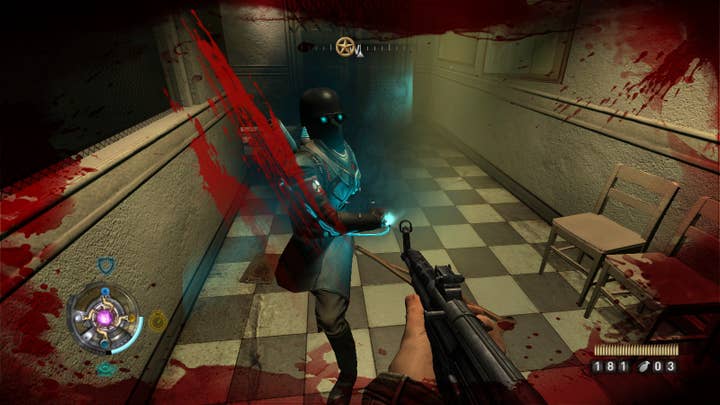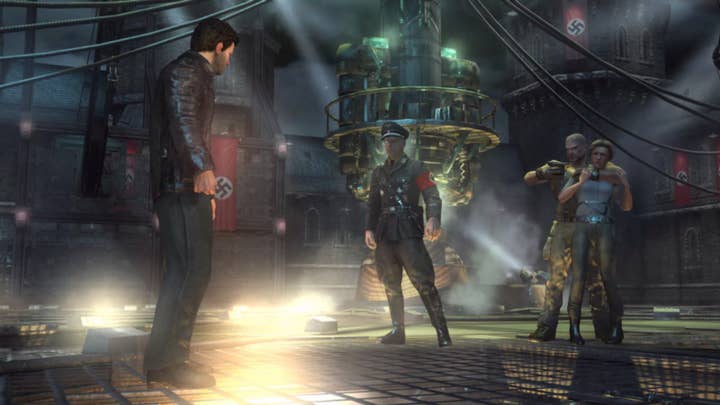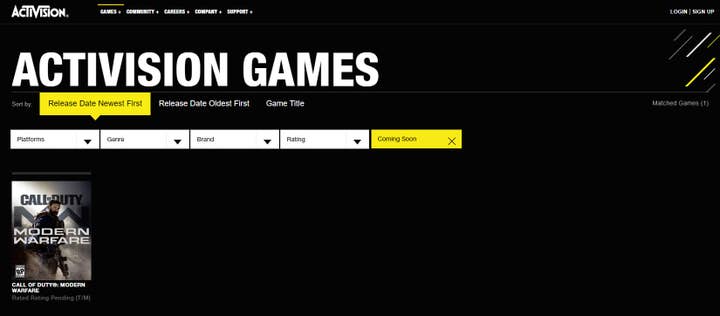Activision and Midway show you can't spell 'layoffs' without 'ffs'
10 Years Ago This Month: Fallout from the 2008 global economic crisis continues as companies cope differently with sliding sales
The games industry moves pretty fast, and there's a tendency for all involved to look constantly to what's next without so much worrying about what came before. That said, even an industry so entrenched in the now can learn from its past. So to refresh our collective memory and perhaps offer some perspective on our field's history, GamesIndustry.biz runs this monthly feature highlighting happenings in gaming from exactly a decade ago.
The economy still sucks
For a while, we had a regular section in this column rounding up the fallout from the 2008 global economic crisis and the numerous shutdowns, layoffs, and other moves across the industry that were blamed on it. It's been a few months since we had that as a dedicated section, but that doesn't mean the industry had recovered.
August of 2009 carried a boatload of reminders that we were still in the thick of it. The monthly NPD numbers were down year-over-year for the fifth straight month, with every system down year-to-date except the Xbox 360, leading Microsoft to call it "the industry's sole bright spot." (But hey, check out those actual unit sales numbers for all the hardware platforms on the NPD story! The mind boggles.)
Layoffs and closures were also resurgent in August, complete with some shoddy treatment for the people who lost their jobs. The month spelled the end for Midway Newcastle and Midway San Diego, the two development studios left out of the deal when Warner Bros. acquired the bulk of Midway out of bankruptcy earlier in the year.
First Midway Newcastle was shut down, with developers reportedly stiffed on their last month's pay and holiday compensation. Then Midway San Diego was sold to THQ for the princely sum of $200,000, in a deal that would preserve the jobs of 40 of the 100 people working there, at least temporarily. (Three years and one WWE spin-off later THQ closed the San Diego studio.)
Elsewhere, Electronic Arts laid off developers at Maxis, while Swedish studio GRIN shut down just a few months after its Bionic Commando reboot launched to underwhelming sales.
Laying people off like a boss

Meanwhile, UK support studio Endrant marked the launch day of its first game, the 2009 Wolfenstein reboot, by laying off a chunk of the team who worked on it.
"We have recently completed a development cycle and have regrettably been forced to make adjustments to staff and headcounts," an Endrant spokesperson said. "Those affected are valued members of our team who have worked incredibly hard on our latest title. We hope that they land on their feet quickly."
Let's look at that statement. "Adjustment to staff and headcounts" is a pretty bloodless way to describe layoffs, but at least the statement starts off by explaining the reason for the layoffs, and making it clear this is not something the company wanted to do. There's regret. Things didn't go as planned. Mistakes were made. It goes on to stress that the people laid off are not at fault; the company still values them, and their work ethic is beyond question. In closing, it wishes them the best, because the person who wrote that understands there is a future for these people the company has hurt, and they want that future to be better than the present.
Forgive my bluntness, but that is absolutely bush league. Fortunately, Wolfenstein publisher Activision was there to show Endrant how it's done.
Activision laid off dozens of Raven Software developers from the Wolfenstein team, but it waited a couple weeks. It's possible Activision waited a little to let the developers at least enjoy the launch of their project before getting their pink slips, but there's very little else about the company's handling of the matter to suggest that level of consideration or concern for its former employees.
Here's what Activision said about the layoffs: "With the recent completion of both X-Men Origins Wolverine, based on the summer blockbuster movie, and Wolfenstein, the next chapter of the famed franchise, Raven Software is slightly reducing its workforce to better reflect the studio's upcoming slate."
It's only a single sentence, but there's so much going on there. It hypes up games that people can buy and pads it with some flowery language about how popular their source material is. Wolverine is from "the summer blockbuster movie," while Wolfenstein is "the next chapter of the famed franchise."
When it comes time to talk about the layoffs, the company says "Raven Software is slightly reducing its workforce," which serves two purposes. First, it uses another bland euphemism in place of something more accurate like, "terminating a bunch of developers without cause right after their game shipped." Second, it moves the decision for the layoffs away from Activision. Raven is the subject of that sentence. Raven is the one laying people off, as if there were no dictates or pressures from above and Activision is just an innocent bystander to all this, the bearer of bad news rather than the forebearer of bad news.

Finally, the given reason for the layoffs is the studio's upcoming release slate. It suggests the number of upcoming games is like the weather or seasons, a fact of life we all must work around rather than a calculated decision into which you could factor the size of your workforce.
Taken as a whole, the statement minimizes any trace of humanity, both for the 35 people in Wisconsin suddenly wondering what they're going to do with their lives, and for whoever at Activision tried to judo flip the bad news into a marketing beat. Just masterful.
Unfortunately, Endrant wouldn't have much time to internalize those lessons, as it quietly folded (judging by employee LinkedIn profiles) a few months later.
Activision, on the other hand, has done just fine, while its upcoming release slate is still at large and slightly reducing workforces with frightening regularity. It was identified as the culprit in 2010 when the company laid off hundreds and shut down Luxoflux and Underground Development. It was blamed again in 2010 when Raven completed work on Singularity and was rewarded with another 40 people let go. It was responsible in 2012. And 2013. And again in 2013. And 2017, when the upcoming release slate threw a couple hundred people to the curb.
But of course, the upcoming release slate's signature moment came earlier this year, when it laid off 800 people despite record profits.

Console contrasts
● Sony unveiled the PS3 Slim and dropped the price of all PS3s to a belatedly reasonable $299. However, the company was still losing money on every unit sold. Lest you worry that would put a dent in the well-documented Sony hubris of the era, fear not. In that same story, Sony Computer Entertainment boss Kaz Hirai painted the Wii's mass market success as a successor to the truly important mass market breakthrough, the PlayStation 2. "Nintendo's obviously done a great job in following that mass acceptance," Hirai said. (PS2 was huge but it seems arbitrary to call that the mass market breakthrough that mattered instead of the original PlayStation, the Genesis, the NES, the Atari 2600...)
● Meanwhile, Nintendo had been dominating the console market for years with the Wii, and somehow carried itself with more humility than last place Sony. President Satoru Iwata said nobody at the company was happy with its E3 press conference, which featured New Super Mario Bros. for the Wii, Wii Fit Plus, the Vitality Sensor, and Super Mario Galaxy 2, with a show-capping unveiling of Team Ninja's Metroid: Other M.
● At the same time, Nintendo designer Shigeru Miyamoto was talking about the industry's shift to digital distribution: "The thing for us is we really don't see the future of video games being merely confined to digital distribution or moving solely or even to a majority of our products being distributed that way." Miyamoto hasn't been proven wrong yet, but Nintendo's digital revenue is growing in a hurry. In its most recent quarter, digital made up 38.3% of Nintendo software sales, up from 24.2% in the same quarter a year ago.
Odds & Sods
● With fans clamoring for Bethesda to announce an Elder Scrolls follow-up to Oblivion, marketing head Pete Hines said that the company was working on something, but "As always, we prefer to have something amazing to show when we talk about it." Judging from the E3 2018 announcements of Starfield and The Elder Scrolls VI and the lack of news on either game since, Bethesda has either changed that preference or it believes placeholder logos count as something amazing.
● EA Games president Frank Gibeau expressed doubt about the peripheral-based rhythm game market, saying "plastic's way down" and "it's unclear whether a lot of this peripheral activity that's happening is going to stick." He was right, of course, but it's an odd comment to hear from an executive with a company just a couple weeks away from distributing the biggest bet in plastic rhythm game history, The Beatles: Rock Band, a game for which Harmonix parent Viacom was paying out $50 million in guarantees and royalties just for the rights to the music.
● After Electronic Arts' attempted Take-Two takeover fell apart, EA CFO Eric Brown said the company would focus on smaller-scale acquisitions from Asia. Two months later, it bought European Facebook game maker Playfish for $300 million with an additional $100 million in performance-based earnouts. (In fairness to Brown, his definition of smaller-scale was an acquisition cost under $1 billion.)
